How to Make Wood Tones Work for You
http://decor-ideas.org 09/11/2015 09:53 Decor Ideas
Wood is a timeless material, but lately it seems to be more popular than ever. There’s a species for every purpose and style. Need something durable? Want something rustic? Or exotic? How about cheap? There’s a wood for that. But having all those choices also makes many homeowners wonder, when is it too much? To help you coordinate multiple types of wood in your space without making it look like a lumberyard or ski lodge, here are 11 things to consider when mixing wood types.
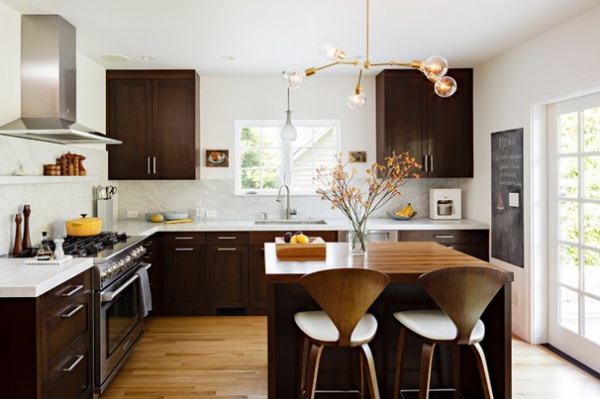
The Rule of Three
In general, it’s safest to stick to a maximum of just three wood tones in a space. This allows each to be distinct. By using a pale tone for the floor, a dark tone for major furnishings, such as cabinets, and a midtone for accents, you can keep the space structured.
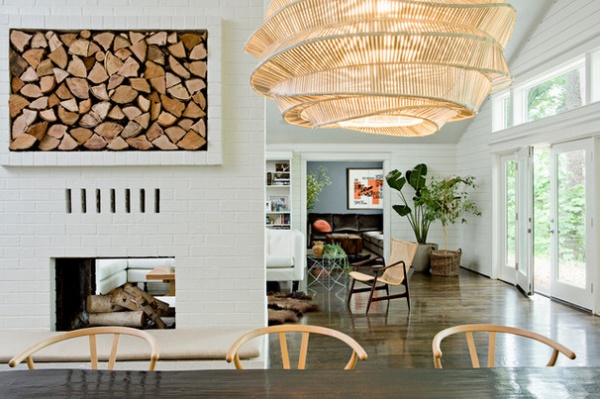
That being said, you can rearrange these three tones, or even break the rule completely, as was done in the home shown here. Notice that this space still includes distinct dark, mid and light and tones, with the lightest tone matching throughout for a sense of consistency. The clear divisions between woods make it obvious that the contrast is intentional, that the woods are not mismatched.
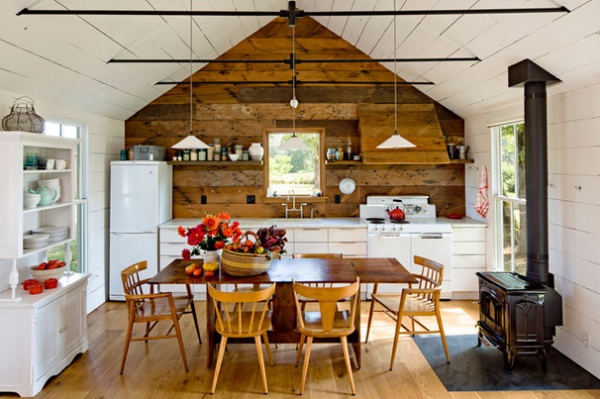
Although the rule of three can be helpful, it’s not the only approach to mixing woods. In fact, the exact opposite works well too. Notice how in this space, the walls are multitonal, and none of the woods are extremely dark. By using the walls or floor to establish a varied color palette and then pulling from within it (like pulling paint colors from a fabric), you can ensure that the woods blend together beautifully.
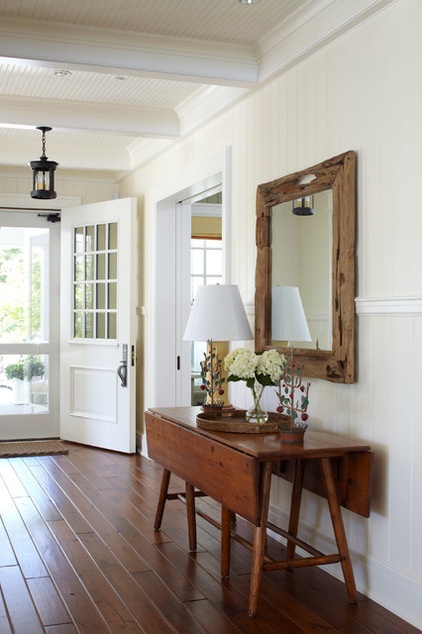
Monotone
Another approach to coordinating different woods is to stick to one approximate tone and enjoy the beauty of the subtle differences between them. Just make sure to use several different varieties (and follow the next tip on texture) to firmly establish the palette,
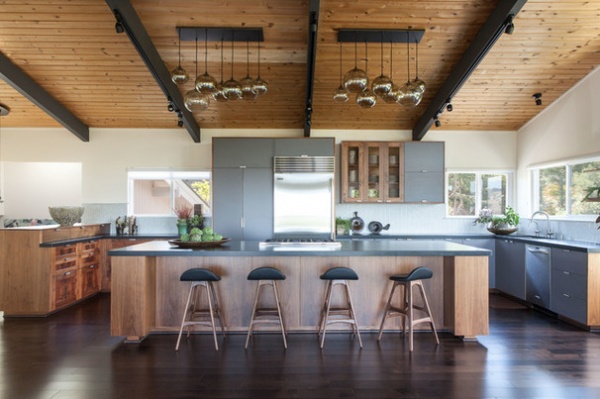
Texture
An important consideration when combining woods is the texture of each surface. Contrasting rough and smooth finishes or wide and small planks will help disparate woods work together. Here, the ceiling treatment and island are a similar tone, but the totally different installations give them their own identities so they don’t match or clash.
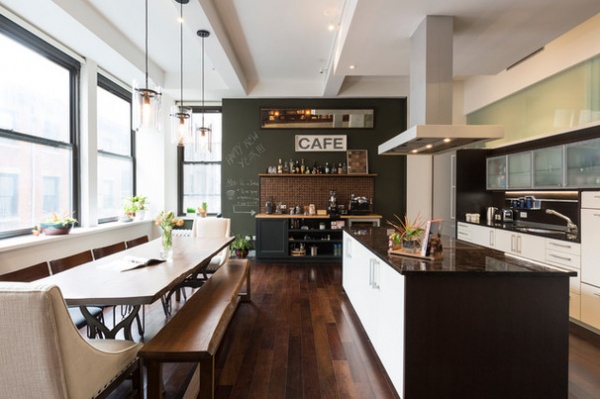
Live-Edge Surfaces
The textural quality of a live-edge wood surface, such as on the table and bench here, creates a beautiful contrast against a more “perfect” wood, such as a sleek, glossy floor. Use this to help add dimension to a wood-heavy space, and to enjoy the unique beauty of a one-of-a-kind piece.
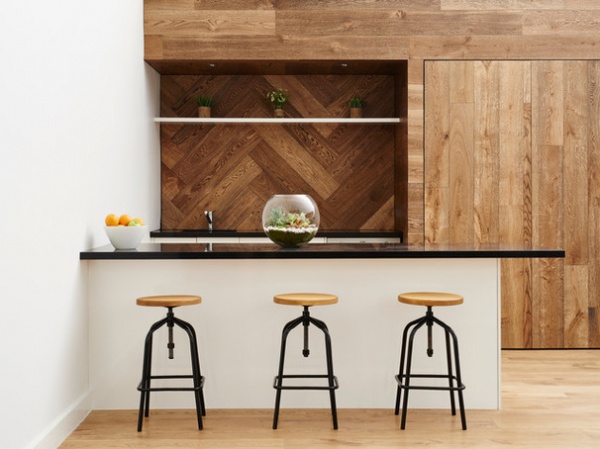
Pattern
The designer of this kitchen used variety and obvious contrast by playing with the laying of the wood planks. The chevron layout in the backsplash area creates a subtle feature while still allowing the wall to feel harmonious. The fact that the wood wall is multitonal also helps it connect to the floor and stools, so the palette is harmonious across all the surfaces.
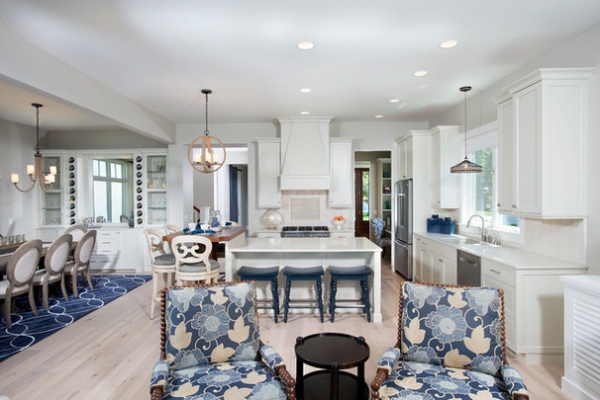
Cottage Style
In this room, quite a few wood tones are present, but they’re all pale or painted and broken up by fabrics; for example, the rug separates the wood chairs from the floor. Sticking to these beachy tones mixed with classic blue is a safe bet, and you can always add a rug if it feels as though the wood is taking over.
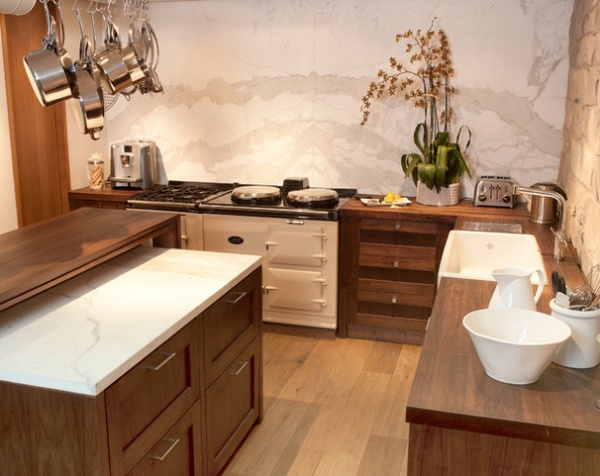
Wood-Tone Alternatives
If you love the look of wood but don’t want it to take over your whole home, you can “cheat” with these alternative finishes.
Stone. Subtle stone with faint marbling is a perfect counterpoint to rich woods, continuing the natural theme without fighting for attention. In this example, a colorful tile might have fought the wood, and a wood backsplash could have been too much, but the subtle stone lets the wood speak for itself.
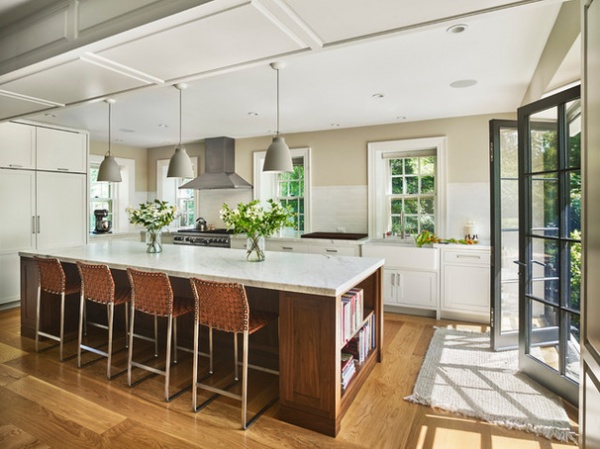
Leather. Leather has a similar color palette to wood and a natural visual softness, making it a great alternative to adding a third wood tone — especially in a basket-weave pattern, like on these stools, or in another extra-textural finish, such as one with a quilted stitch.
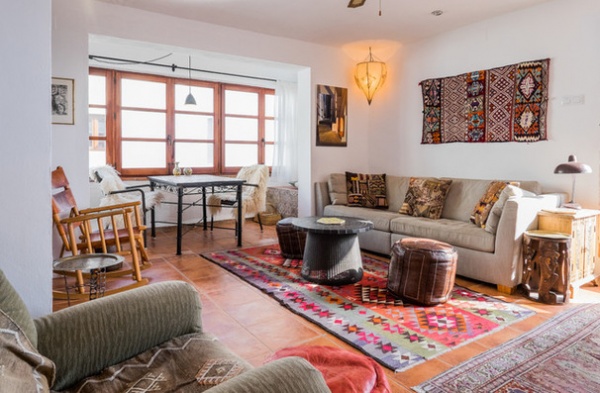
Terra-cotta. For a little Southern flavor, warm terra-cotta tiles can tie different woods together while providing a totally different texture. Notice how this space also includes leather, as well as a mix of simple and carved woods for a rich palette of textures.
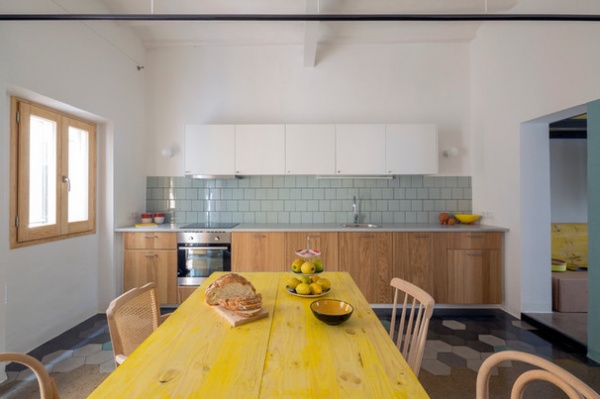
Colorful stains. A brightly colored stain treatment is a great way to add wood to a space without worrying whether the tones match. The chairs, table and cabinets here are all different woods, but the bright cheerful yellow obviously isn’t meant to “match” any of them.
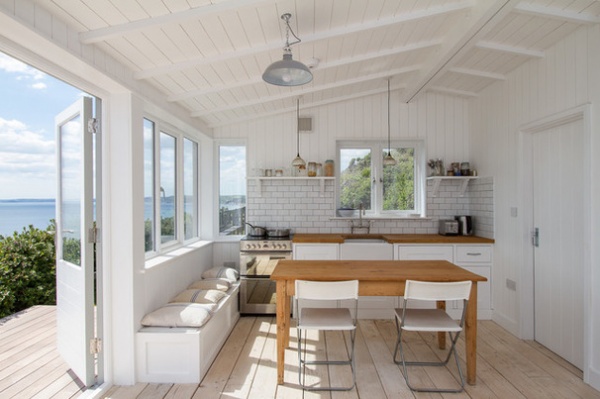
White. The natural texture of whitewashed wood will still show through a coat of paint, making this treatment another great option for a cottage-inspired look without mismatched tones.
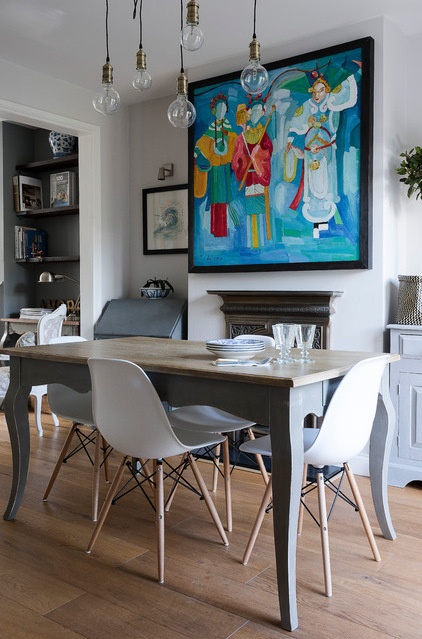
Antiqued finishes. Rather than a solid white paint job, giving wood furnishings a worn finish preserves the raw character of the wood while still breaking up the look with some new tones. Try pale grays and green-grays for a timeless historical-home look that can suit traditional or modern schemes.
More
What Goes With Wood Cabinets?
What Goes With Dark Wood Floors?
What’s the Right Wood Floor Installation for You?
Related Articles Recommended












